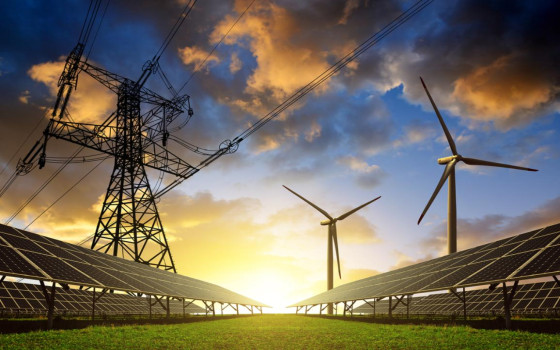
A Greek-Egyptian project to build a 1,000-kilometer submarine power cable... costing €4 billion and expected to begin operating within five years... as part of the European approach to diversifying energy sources.

- Europe and Arabs
- Thursday , 8 May 2025 10:42 AM GMT
Athens - Brussels: Europe and the Arabs
Greece and Egypt have reaffirmed their commitment to the proposed subsea electricity interconnection designed to transport renewable energy from North Africa to Europe.
Greek Prime Minister Kyriakos Mitsotakis and Egyptian President Abdel Fattah el-Sisi renewed this pledge during talks in Athens, following the signing of cooperation agreements in multiple sectors. According to what was reported by the European news network Euronews in Brussels, the planned 3,000-megawatt cable will stretch approximately 1,000 kilometers under the eastern Mediterranean and has received European Union support, making it eligible for significant funding from the bloc.
Mitsotakis said: "This will allow both Greece and Europe to import low-cost energy—primarily wind energy, which you can produce very competitively—and export it to Europe."
The project, estimated to cost around €4 billion, is expected to be operational within five years under an ambitious timetable set by the two governments.
The project aims to transmit solar and wind energy, which was developed explicitly for the project in Egypt, with private sector participation led by the Greek Kopelouzos Group.
El-Sisi highlighted the strategic importance of the project. He said: "It is not just a bilateral issue—it is a strategic regional project, as it creates a direct link extending to Europe via Greece."
The Egyptian president added, "We count on the support of the European Union for this major initiative."
He expressed The European Union expressed its strong interest in expanding energy partnerships with non-member states to diversify energy sources and reduce its historical dependence on Russian energy following the 2022 full-scale invasion of Ukraine.
Mitsotakis and Sisi also discussed regional security, migration challenges, and ways to deepen Egypt's relationship with the EU.
Mitsotakis said, "Greece is a steadfast ally of Egypt, including on issues related to your country's relationship with the European Union," emphasizing Athens' role in fostering close EU-Egypt relations.
The talks in Athens concluded with agreements to explore further avenues of cooperation in the energy sector, facilitate the expansion of seasonal employment for Egyptian workers in Greece, and enhance joint work in the financial, defense, and cultural sectors.












No Comments Found